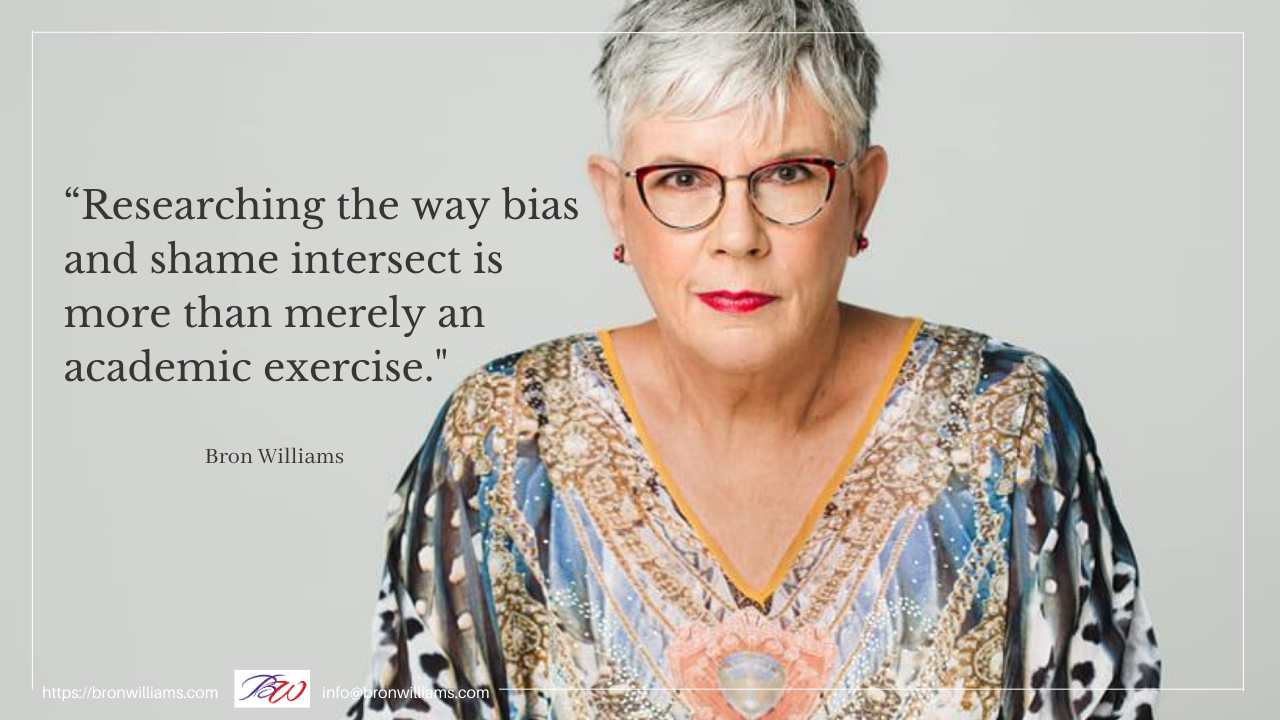Why do that?
It's about helping people understand themselves better.

In 2012, on a tiny tropical island in the Pacific, 35km south of the equator, I was confronted for the first time by my latent racist bias and my own white privilege.
Having lived for more than 5 decades in largely white Australia, I was working with The Salvation Army in the off-shore processing centre on Nauru – working alongside Pacific islanders and refugees from the Middle East, Sri Lanka and Asia, hearing a multitude of different languages and looking after the faith needs of a variety of faith groups (Christian, Muslim, Hindu, Buddhist, Zoroastrian). And the messaging I’d received as a child that difference was a threat, that it was somehow wrong, and that white people had the right way of viewing the world was seriously challenged. Not only was I able to reflect on what I’d observed in my own attitudes and behaviour, as well as those of other white ex-pats on the island, my reflections were confirmed when I talked with Fatima, who headed up the Salvo Nauruan team about the dismissive way in which the Nauruans were spoken to, how their advice was ignored, and how a very real sense of superiority was communicated, Fatima merely replied “We know that about you guys, but we just accept it.”
For the first time, I understood that I had biases that impacted the decisions I made and the relationships I had. And I felt ashamed of these attitudes that did not align with how I saw myself as someone who was inclusive and valued connection. On returning to Australia, I wrote an honours dissertation evaluating Australia’s response to asylum seekers and refuges using the ethics of Isaiah – and looked at the biases that are inherent in white Australian culture (you can read it here) The experience on Nauru and writing the honours thesis were pivotal in shifting the course of the last third of my life as I moved away from church-based ministry into establishing a speaking and consulting business which, over time, has focussed on unconscious bias.
At the end of unconscious bias presentations there is always at least one person in the room who pushed back against what I said, declaring that they weren’t racist or sexist or ageist, that they did not have any kind of biases. I recognised that shame was one of the driving forces for the resistance and pushback against exploring our biases and so creating change. It was this recurrent observation – both my own and that of others who worked in the coaching and consulting space with whom I shared my observations - coupled with a seemingly random question from my business coach regarding goals that set the stage for moving into PhD research.
In all the work I do in the speaking and consulting space, my goal is to normalise the experience of illicit bias – those that are prohibited, forbidden or outside societal norms - as part of the way we all think and by so doing to mitigate the felt response of guilt and shame that arises. More than that, my goal in undertaking research into the intersection of bias and shame is to make a difference in how people understand themselves and their relationships to others. My research is more than an academic exercise - it is an attempt to bring understanding to the interplay of illicit biases that all people hold and the shame that is felt when those biases, that do not align with the values that are held dear, are unearthed.
Bron Williams | Powered by Pro Website Creators | Privacy Policy